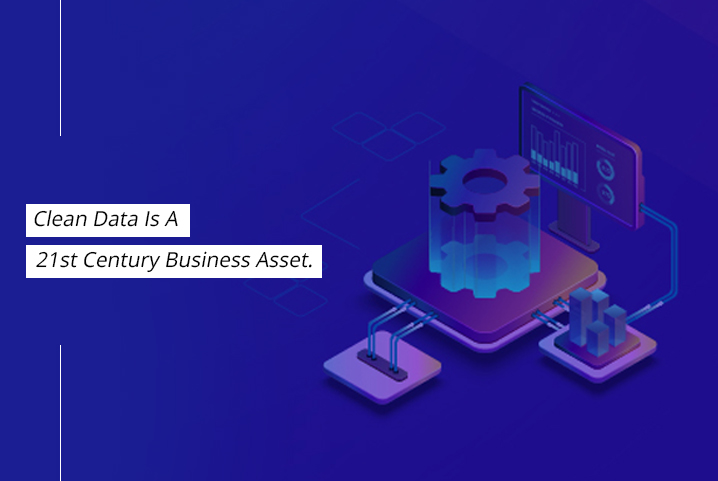
As business IT systems keep generating a voluminous amount of data on an everyday basis, the impact of mismanaged data is rising more than ever across business functions and domains. Not only can bad or erroneous data impact decision making, but it can have some severe and irreversible long term consequences in other areas too. Data is now all-pervasive, and businesses that do not practice robust data quality management must prepare for missing out on both growth and innovation opportunities.
Cleaner Data For Stronger BI:

Without effective data visualization, all attempts for achieving business intelligence are bound to fail. To create a robust BI and Analytics ecosystems, businesses must first focus on overcoming fundamental challenges related to data management like:
- Eliminate uncertainties related to data residences like storage, security, and accessibility.
- Create efficient data pipelines.
- Create efficient data export/import and integration models.
- Create effective matching and profiling for data credibility.
Once the groundwork is improved, BI and analytics can work their magic and allow enterprises to do more with their business data. Here are some of the primary benefits that clean data brings to BI and Analytics.
1. Digital Transformation Success
Clean data helps enterprises succeed in their digital transformation journey. Be it salesforce, cloud computing or BI, data is at the very center of every new-age IT solution. Clean data not only ensures a smooth digital transformation but also makes the journey cost-effective and goal-driven.
2. Stronger and Effective Collaborations
One of the prerequisites for clean data is a robust data governance policy. With good data governance, businesses can efficiently manage data across multiple business cross functions. This paves the way for stronger and effective collaborations along with improving workforce productivity and workflow efficiencies.
3. Accurate Exploratory Data Analysis (EDA)
EDA is now a fundamental aspect of data-driven decision making. It involves early-stage analysis of business data to unlock hidden patterns, identify anomalies, and test the new hypothesis using summary stats and graphs. Through data cleansing, it becomes easier to identify and remove data errors and inconsistencies. Subsequently, it ensures EDA accuracy and effectiveness.
4. Boosts Revenue

Clean data unlocks new opportunities while cementing existing customer relationships. More than 90% of enterprises say that they have missed big opportunities due to below-par customer data management policies. Clean data while boosting new revenue opportunities, also optimize legacy workflows and processes for lower operational costs.
5. Compliance
Digital business is not limited by geographical boundaries. Today, it is easier and affordable to serve customers located at the remotest corners of the world. But digital businesses need to be data compliant as data policies change consistently with geographical boundaries. In the absence of a proper data management policy, businesses find it very difficult to adhere to the varying data compliance policies. With clean data, businesses can create data ecosystems that seamlessly align with compliance policies specific to different demographics.
Charles Babbage, the father of the computer, said, “Errors using inadequate data are much less than those using no data at all.” However, unlike the past, computing power today has reached its true zenith, and businesses must make use of everything within their capacity to do more with their data. With Pratham’s data engineering services, enterprises can overcome their data challenges and turn their data into business assets. Contact us today for a qualified and experienced team of data engineers and transform your business data into stimulating business decisions.








